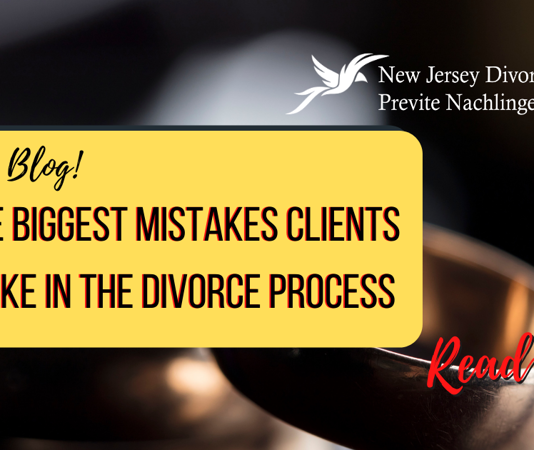FINANCIAL ANALYST: THE BIGGEST MISTAKES CLIENTS MAKE IN THE DIVORCE PROCESS

Sara Faitelson, Certified Divorce Financial Analyst, has seen many mistakes that people make over the course of their financial planning. If you are going through a divorce, here are just a few for you to consider:
- Don’t Let Your Emotions Control Your Decisions: People go through many emotions and phases from the time they start thinking about divorce to the time the divorce is actually done. For many, it is such an excruciating process that people just want it over, no matter the cost. As such, they are sometimes willing to give away everything just to end it. Sadly, many people regret these decisions later on when they are less emotional, when things are done, and more importantly, when they realize that they simply don’t have enough money because they compromised too much in the divorce. We know it’s a difficult process, but always remember that the decisions you make now will really affect you for the rest of your life. Make sure you’re not compromising solely to “get it done” and that any compromises you make have been well thought out and discussed with your legal and financial advisors.
- Make Sure You Get Your Share of the Pension. If you are going through a divorce, it is likely you are evaluating all of the assets, including pensions and other retirement plans. However, pensions have very specific requirements in order for you to get your share if it’s not in your name. Your divorce lawyer will need to obtain what is called a QDRO (Qualified Domestic Relations Order). This is a specific kind of Order that allows your spouse to assign your interest in the pension to you if the pension is not in your name. The work doesn’t stop there though, and this is where Sara sees crucial errors. You must stay informed as to when your spouse retires and contact the Plan Administrator yourself to ensure that you start receiving your distribution of the pension. Don’t assume that someone else is taking care of it. Sara has seen couples engage in post-judgment litigation over this when the Plan Administrator didn’t properly distribute the Pension.
- Make Sure Life Insurance Provisions Are Active, In Force and Maintained. Sara has seen devastating consequences when a party does not maintain life insurance as required by the settlement agreement. It is your responsibility to make sure that life insurance is procured, in force and maintained. Don’t assume that just because it’s an obligation by your spouse in your settlement agreement that they are actually doing it. At Netsquire, we tailor your settlement agreement to include additional provisions to protect you for this very reason. You should be entitled to contact the insurance carrier yourself at any time and confirm that life insurance is in place, that the premiums are current, the death benefit amount and who the named beneficiaries are. However, this must be explicitly provided in your settlement agreement.
- Evaluate Your Parent’s Estate Plan for a Dynasty Trust.This is important so that your spouse (current or future) will not be entitled to share in any inherited property you may receive, even if it might otherwise become marital property according to the divorce laws. In New Jersey, inherited property is generally considered exempt from marital property. However, there are exceptions to that rule, one of them being when you use it as marital property. (For instance, using inherited money to pay off a mortgage). There are creative ways to prevent this, which requires a conversation about your parents’ estate planning.
- Be Careful About Offsetting Retirement Accounts.It is not uncommon to see a couple who has to split all of their retirement assets simply agree that one party keeps their own and then one pays a smaller lump sum to equalize the difference. This sounds like a good idea because it means less money actually exchanges hands (and less paperwork). However, if you are keeping your pension and giving your spouse liquid money (e.g. a 403b or 401k funds) instead, you could be giving away money that would otherwise have been yours to keep if that spouse predeceases you. Sometimes when an ex-spouse who would have had a share of your pension dies before you, that spouse’s share reverts back to you. Therefore, if your ex-spouse dies and you already gave him his/her share of the pension with extra 403b funds, you won’t get those back. However, if you had just given him/her a share of the pension, you would have gotten to keep it all. This does depend on the specific terms of the Pension Plan at issue. It’s important to know those details before you agree upon how the retirement plans will be distributed.
These are just a few of the most glaring complications Sara Faitelson has seen in her practice as a financial advisor that are particularly important for divorcing couples. At Netsquire, we are accustomed to handling these issues to protect our clients on these issues.
If you need the advice of a financial advisor like Sara, you can reach her here:
If you need the assistance of legal advisor for your divorce, or if your divorce is already done and you are concerned these details were not handled properly, contact us for a to discuss your options.



